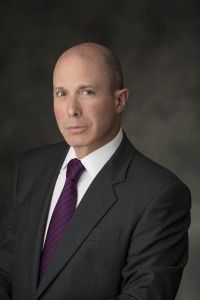The International Insurance Society has come a long way since its first meeting in a conference room in Austin, Texas.
The 50th edition of its annual conclave opened Monday morning in London at the Park Plaza Westminster Bridge Hotel on the south bank of the Thames. Global leaders focused on themes of innovation and relevance in a city where the ancestry of insurance risk-taking dates back for centuries.
IIS President and CEO Michael J. Morrissey welcomed delegates from just under 100 countries; commenting that the organization is confident of reaching “three figures” for its membership in the near future.
In the opening address Fiona Woolf, Lord Mayor of the City of London, welcomed the IIS back to London for the first time in 10 years. She pointed out that the concentration of insurers, reinsurers, brokers and especially Lloyd’s, makes the city a natural place for a meeting of global insurance industry leaders.
The London insurance market “takes a long term view” of the risks it handles, she said: explaining that it isn’t enough to simply cover present day risks, as it’s also necessary to prepare for the ones that will arrive in the future; among them climate change, the depletion of natural resources and the ever growing presence of technology in all aspects of daily life.
“Be a good ancestor,” was how she described both her personal goal, and the proper goal for people presently working in the financial services industry, including insurance. Woolf explained that people should not only “learn from the past,” but also put that knowledge to work to prepare for the future.

Inga Beale, Lloyd’s CEO, took up Woolf’s theme concerning the necessity to take on new risks. Beale pointed out that for the past 300 plus years, London has been “at the forefront of innovation,” insuring new types of risk, including writing the first coverage for automobiles in 1904, aviation and space satellites, as well as the first D&O policies in the U.S.
She also said “under-insurance isn’t just an issue in emerging markets.” In fact, many sectors of the developed markets are also under-insured. “It’s a problem, but again, it’s also an opportunity.”
We “don’t run out of risks,” said Nikolaus von Bomhard Chairman of the Board of Management of Munich Re, adding that the industry should be seeking to take on a larger share of those risks.
Evan Greenberg, chairman and CEO of the ACE Group, explained that insurance reflects the concerns of society as a whole, but these may differ from country to country, as do the solutions. Therefore insurers “have to develop insurance products to [effectively] transfer risk.” This is more urgent in rapidly developing economies, “where wealth creation is only beginning,” as a result of a rising middle class, especially in Asia.
Dominic Casserley, Willis Chairman and CEO, noted that while insurance isn’t perceived as “exciting,” the “perception of risk is changing, both on the property/casualty side and the life side,” as the industry manages more risks, which should make it “more relevant.

Greenberg said, however, that “the ability of the industry to remain relevant is questionable,” as companies seem to be taking on all or portions of new risks themselves. “There are new exposures to huge swaths [of risk] where the insurance industry doesn’t participate.” Clients are looking to alternative means to protect themselves, he said.
All the panelists agreed that, while the industry had generally handled the financial crisis well, it needs to be more aware of the possibility of future crises. Many of the regulations, either put in place or pending in the wake of the crisis do affect the insurance industry.
Barry Stowe, Chief Executive of Prudential-Asia, distinguished two main purposes of regulation: the first being the overall supervision of the industry, but the second, and equally important purpose, is to assure that the regulations also promote and nurture opportunities for future growth.
That growth is also dependent on the insurance and reinsurance industry recruiting, training and retaining talented people.
Beale noted the seeming absence of women from the IIS bulletin that was distributed at the seminar, indicating that the industry should “find new talent that reflects the markets it serves.
Most of the panelists, however, said that in their own companies there wasn’t really a problem in finding and retaining new talent. Given those companies are among the major players in the industry this isn’t entirely surprising, but for companies that don’t operate in such a rarified atmosphere the problem certainly exists.
“The Impact of Science and Technology on the Insurance Industry” is the theme of this year’s seminar. While most of the panelists avoided the term “big data,” it’s nonetheless a central issue, mainly because there’s so much of it, and the industry hasn’t really gotten around to handling it very well. Beale cited the fact that the location of a package being delivered by UPS can be found via tracking at any point; however, finding out the status of an insurance claim with the same ease just doesn’t exist.
If the industry isn’t making the most of technology, most of the major players are well aware of the fact, and, as most of the panelists indicated, are doing what they can to make better use of technology. Greenberg cited ACE’s experience in creating new products as an example; indicating that “between 50 and 60 percent of the business it conducts didn’t exist six years ago.





















 Beazley Agrees to Zurich’s Sweetened £8 Billion Takeover Bid
Beazley Agrees to Zurich’s Sweetened £8 Billion Takeover Bid  Winter Storm Fern to Cost $4B to $6.7B in Insured Losses: KCC, Verisk
Winter Storm Fern to Cost $4B to $6.7B in Insured Losses: KCC, Verisk  What Analysts Are Saying About the 2026 P/C Insurance Market
What Analysts Are Saying About the 2026 P/C Insurance Market  AIG, Chubb Can’t Use ‘Bump-Up’ Provision in D&O Policy to Avoid Coverage
AIG, Chubb Can’t Use ‘Bump-Up’ Provision in D&O Policy to Avoid Coverage 












